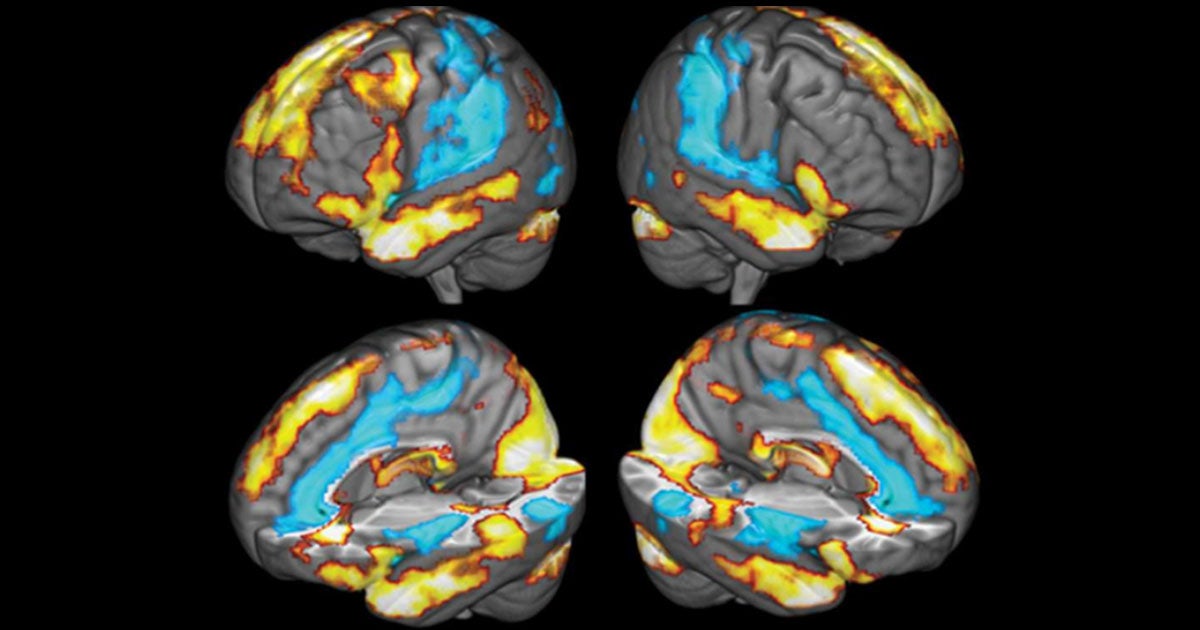Hey there! Feeling stressed and overwhelmed? Well, I’ve got some good news for you. In this article, we’re going to explore the powerful connection between gratitude and self-care, and how prioritizing your well-being through thankfulness can truly transform your life. We’ll dive into the concept of gratitude, why it’s important, and how practicing gratitude can positively impact your mental and physical health. So, get ready to discover some practical tips and techniques that will help you unleash your potential, find happiness, and create harmony within yourself and with others. Buckle up, because we’re about to embark on an incredible journey of self-discovery and personal growth. Let’s get started!

This image is property of images.unsplash.com.
Why Gratitude is Important for Self-Care
In our fast-paced and often stressful modern lives, self-care has become increasingly important. It is crucial to prioritize our well-being and take time out for ourselves. One powerful tool that can enhance our self-care practice is gratitude. Gratitude is the practice of acknowledging and appreciating the good things in our lives, big and small. It has the power to transform our mindset and enhance our overall well-being. In this article, we will explore the importance of gratitude for self-care, the benefits of practicing gratitude, and practical ways to incorporate gratitude into our daily lives.
The Power of Gratitude
Gratitude is not just a feel-good concept, but rather a scientifically proven method of increasing happiness and overall well-being. Numerous studies have shown that expressing gratitude has a positive impact on our brains and bodies. It can improve our mental health, boost our immune system, and increase our overall life satisfaction. When we practice gratitude, we shift our focus from what is lacking in our lives to what we already have, which can lead to a greater sense of contentment and fulfillment.
The Benefits of Practicing Gratitude
Practicing gratitude on a regular basis can bring about a multitude of benefits. Firstly, it increases positive emotions. When we intentionally focus on the things we are grateful for, we train our brains to seek out the positive aspects of our lives, leading to an overall increase in happiness and joy. Additionally, gratitude can reduce stress and anxiety. By shifting our focus to gratitude, we cultivate a sense of calm and peace, helping us better cope with the challenges we face.
Moreover, gratitude has a profound impact on our physical health. Research has shown that those who regularly practice gratitude experience improved sleep, reduced blood pressure, and a stronger immune system. When we are thankful for our bodies and prioritize their care, we are more likely to engage in behaviors that promote health and well-being.
Lastly, gratitude can improve our relationships. When we express gratitude towards others, we strengthen our connection with them. Gratitude fosters a sense of appreciation, love, and empathy. It helps us focus on the good qualities of others, leading to more harmonious and fulfilling relationships.
How Gratitude Affects Self-Care
Gratitude and self-care go hand in hand. When we practice gratitude, we are essentially practicing self-care by acknowledging and appreciating the good in our lives. It is a form of self-compassion that allows us to prioritize our well-being. Gratitude shifts our focus from what we lack to what we have, cultivating a mindset of abundance and contentment. By incorporating gratitude into our self-care routine, we are better equipped to nurture ourselves and prioritize our overall well-being.
Creating a Gratitude Practice
In order to fully reap the benefits of gratitude, it is important to create a gratitude practice. This involves intentionally incorporating gratitude into our daily lives. Here are some practical ways to cultivate gratitude:
Keeping a Gratitude Journal
One of the most effective ways to practice gratitude is by keeping a gratitude journal. Set aside a few minutes each day to write down three to five things you are grateful for. They can be as simple as finding a parking spot or as significant as landing a new job. By regularly acknowledging the good in your life, you train your brain to seek out the positive, leading to a more grateful mindset.
Expressing Gratitude to Others
Another powerful way to practice gratitude is by expressing it to others. Take the time to thank the people in your life who have made a positive impact on you. Write a heartfelt thank-you note, send a text message expressing your appreciation, or simply tell someone in person how grateful you are for them. Not only does this foster a sense of connection and strengthen relationships, but it also helps to spread positivity and gratitude to others.
Practicing Mindfulness and Meditation
Incorporating mindfulness and meditation into your self-care routine can also enhance your gratitude practice. During mindfulness exercises or meditation sessions, intentionally focus on the present moment and cultivate a sense of gratitude for the sensations, emotions, and experiences that arise. This can help to ground you in the present and amplify feelings of gratitude.
Creating a Gratitude Ritual
Consider incorporating a gratitude ritual into your daily routine. This can be as simple as taking a few moments each morning or evening to reflect on the things you are grateful for. Light a candle, play calming music, or create a sacred space to make this practice more meaningful. By incorporating a ritual, you are signaling to yourself that gratitude is a priority in your life.
Fostering a Gratitude Mindset
In addition to incorporating gratitude into our daily routines, it is important to foster a gratitude mindset. This involves a shift in perspective and a conscious effort to cultivate gratitude in all areas of our lives.
Shifting Perspective
One way to foster a gratitude mindset is by shifting our perspective. Instead of focusing on what we don’t have or what’s going wrong, we can choose to focus on the positive aspects of our lives. When faced with challenges or setbacks, try reframing them as opportunities for growth or lessons to be learned. By shifting our perspective, we open ourselves up to gratitude and invite positivity into our lives.
Finding Gratitude in Challenging Situations
Even in the midst of difficult circumstances, it is possible to find gratitude. Challenge yourself to identify the silver linings or lessons learned from challenging situations. While it may be challenging at times, finding gratitude in difficult times can help us develop resilience and a greater appreciation for the good in our lives.
Cultivating a Grateful Attitude
Finally, cultivating a grateful attitude involves making gratitude a daily practice. Challenge yourself to find something to be grateful for in every situation. Whether it’s a beautiful sunset, a kind word from a stranger, or a delicious meal, consciously look for the blessings in your life. By regularly practicing gratitude and cultivating a grateful attitude, you are inviting more joy, fulfillment, and well-being into your life.
The Connection Between Self-Care and Gratitude
Self-care and gratitude are deeply interconnected. Practicing self-care is a form of gratitude towards ourselves. It involves recognizing our worth and prioritizing our well-being. By engaging in self-care activities, we are showing ourselves the appreciation and gratitude we deserve. On the other hand, gratitude can also be a powerful self-care tool. It helps us shift our focus to the positive aspects of our lives, reduces stress and anxiety, and enhances our overall well-being.
Overcoming Barriers to Gratitude and Self-Care
Despite the benefits of gratitude and self-care, there can be barriers that prevent us from fully embracing them. It is important to identify and overcome these barriers in order to cultivate a sustainable gratitude practice and prioritize our well-being.
Negative Thinking and Mindset
Negative thinking and mindset can be a significant barrier to gratitude and self-care. When we constantly focus on the negative aspects of our lives, it becomes difficult to see the good. By challenging negative thoughts and practicing positive affirmations, we can rewire our brains to seek out the positive and cultivate a mindset of gratitude.
Lack of Time and Prioritization
Another common barrier to gratitude and self-care is a perceived lack of time. Many of us lead busy lives and often put our own well-being on the backburner. However, by prioritizing self-care and gratitude, we can create the time and space necessary to nurture ourselves. It may require setting boundaries, saying no to certain commitments, and making self-care a non-negotiable part of our daily routine.
Self-Criticism and Perfectionism
Self-criticism and perfectionism can also hinder our ability to practice gratitude and prioritize self-care. By setting unrealistic expectations and constantly striving for perfection, we may overlook the good in our lives and neglect our own well-being. It is important to challenge these beliefs and remind ourselves that self-care and gratitude are essential for our overall happiness and well-being.
Tips for Cultivating and Sustaining a Gratitude Practice
Cultivating and sustaining a gratitude practice requires commitment and consistency. Here are some tips to help you incorporate gratitude into your daily life:
Start Small and Be Consistent
Begin by incorporating small acts of gratitude into your daily routine. Whether it’s writing down three things you are grateful for each morning or expressing appreciation to someone each day, starting small and being consistent is key. By integrating gratitude into your daily life in manageable ways, it becomes easier to sustain the practice over time.
Focus on the Present Moment
Gratitude is most powerful when we focus on the present moment. Practice being fully present and mindful of the blessings and positive aspects of your life. Take the time to savor joyful moments, appreciate the beauty around you, and express gratitude for the simple pleasures in life.
Find Gratitude in the Little Things
While it’s important to acknowledge and appreciate the big moments in life, finding gratitude in the little things can be equally impactful. Notice the small acts of kindness, the moments of joy, and the everyday miracles that often go unnoticed. By finding gratitude in the little things, we cultivate a deeper sense of appreciation for life as a whole.
Share Your Gratitude with Others
Lastly, share your gratitude with others. Express appreciation, kindness, and gratitude to the people in your life. Share your gratitude journal with a loved one, write thank-you notes, or simply tell someone how much you appreciate them. By sharing your gratitude, you not only strengthen your relationships but also inspire others to cultivate a gratitude practice of their own.
The Importance of Self-Care Accountability
In order to prioritize self-care and gratitude, it is crucial to establish self-care accountability. This involves setting boundaries, seeking support, and making self-care a non-negotiable priority.
Setting Boundaries and Saying No
One way to establish self-care accountability is by setting boundaries and learning to say no when necessary. It is important to prioritize our well-being and not overextend ourselves. By setting clear boundaries and saying no to activities or commitments that drain us, we create space for self-care and gratitude in our lives.
Seeking Support and Accountability
Another key aspect of self-care accountability is seeking support and accountability from others. Surround yourself with like-minded individuals who value self-care and gratitude. Share your goals and challenges with them, and ask for support and encouragement. Having a support system can help keep you motivated and provide guidance when needed.
Self-Care as a Non-Negotiable Priority
Ultimately, self-care should be a non-negotiable priority in your life. Commit to making self-care and gratitude a daily practice, even when it feels difficult or inconvenient. Remember that prioritizing your well-being is essential for your overall happiness and success.

This image is property of images.unsplash.com.
Conclusion
Gratitude and self-care are not just buzzwords; they are powerful practices that can transform our lives. By incorporating gratitude into our self-care routines, we can enhance our overall well-being, reduce stress and anxiety, and improve our relationships. It is important to create a gratitude practice and foster a grateful attitude in order to fully reap the benefits of gratitude. Overcoming barriers to gratitude and self-care, such as negative thinking and lack of time, is crucial. By implementing small acts of gratitude, focusing on the present moment, and finding appreciation in the little things, we can cultivate and sustain a gratitude practice. Additionally, establishing self-care accountability and making self-care a non-negotiable priority is essential. Ultimately, by prioritizing our well-being through gratitude and self-care, we are taking the first step towards becoming the best version of ourselves and living a happier and more fulfilling life.

This image is property of images.unsplash.com.



